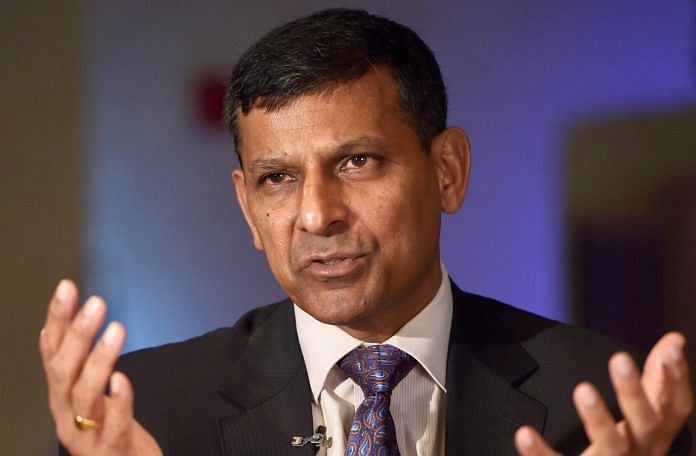Rajan said he & a group of economists wanted to highlight what needs to be done for economy as political parties were setting platforms for polls.
New Delhi: Growth in the Indian economy is not creating enough jobs, former Reserve Bank of India governor Raghuram Rajan said Friday, adding that more steps were needed to reduce India’s fiscal deficit and ensure macroeconomic stability.
“Growth clearly is not creating enough jobs,” Rajan said at a press conference of several economists who have drafted a five-year economic strategy for India that covers several sectors.
The strategy paper, drafted by Abhijit Banerjee, Sajjid Chinoy, Gita Gopinath, Neelkanth Mishra, Karthik Muralidharan and Rajan, among others, was released in New Delhi Friday. It contains suggestions the economists believe can help India address some key economic challenges.
“The idea of the report is constructive criticism and not to point fingers at any political party,” said Rajan, “As political parties are setting their platforms for the elections, we want to highlight what needs to be done.”
Even so, Rajan’s statement on and growth is likely to bolster the opposition’s criticism of the Narendra Modi government over its failure to create jobs, a major campaign promise of the Bharatiya Janata Party in 2014.
Also read: Loan waivers & lending targets for banks are signs of lazy govt, Raghuram Rajan says
28 million applicants for 90,000 low-level jobs
With employment data low in quality and controversial, the strategy document cites in support of its argument a recent news report that said 28 million people had applied for 90,000 low-level railway jobs.
Among other suggestions, the economists have stressed the need for India to maintain macroeconomic stability, saying they are not in favour of trading it for growth.
“Every time macroeconomic stability has been traded off to boost growth, the economy has been pushed towards a crisis, the consequences of which have undermined the very growth that was the initial policy focus,” the report says.
Low and stable inflation, a consolidated fiscal deficit that leaves enough space for private investment, and a sustainable current account deficit that can be financed by capital flows are important to maintain macroeconomic stability, the report adds.
The economists said further fiscal consolidation was needed to draw in private investment.
“India’s aggregate fiscal deficit is still close to 6.5 per cent of GDP, higher than almost any in the G-20, and not significantly lower than levels that existed five years ago,” their report said, “However, our investment rate has fallen sharply in recent years.”
The report suggests that the combined fiscal deficit should be brought down to 5 per cent of the GDP and the general government debt to 60 per cent of the GDP. Other recommendations include incentivising states to align them with the central government’s fiscal goals.
The economists also noted that India’s vulnerability to external shocks was increasing due to its widening current account deficit.
Rajan also struck a note of caution against farm loan waivers. “India is seeing agrarian distress but…farm loan waivers are not the way to go as it benefits only the well-connected and not the poor,” he added.
“The political system has a limited number of options. MSP and loan waiver are the only instruments that they see are available before the coming elections because anything else will take longer,” he said, “But this inhibits your ability to take longer term views when you come to power.”




The government should be actually seeking out advice from such eminent economists who have the country’s best interests at heart. In terms of intellect, they tower above the folks who are rendering advice, in house.